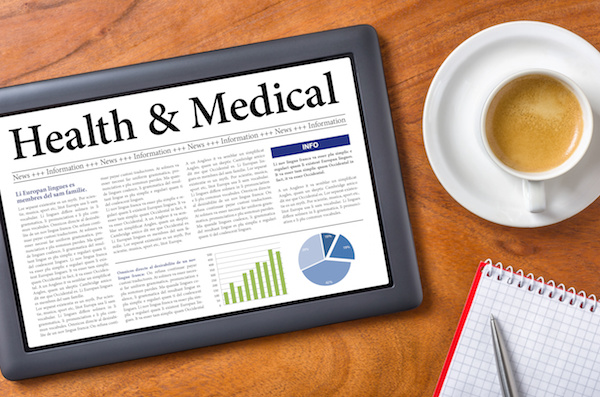
Here are some of the latest health and medical news developments, compiled by the editors of HealthDay:
Many Teens Discount Dangers of Texting While Driving: Survey
Many American teens consider texting while driving to be less dangerous than drinking and driving, even though research shows the two can be equally serious, says a survey released Monday.
The poll of 697 teens ages 14 to 17 found that only 36 percent strongly agreed that they could be killed if they regularly text and drive, compared with 55 percent who believed the same thing about drinking and driving.
The survey also found that 63 percent of the teens strongly agreed they could get into an accident if they text and drive, compared with 78 percent who believed the same thing about drinking and driving.
Teens who said they never text and drive were more likely than those who admitted to texting while driving to strongly agree they could get into an accident if they text and drive — 73 percent vs. 52 percent.
“Some teens still think the consequences of reaching for a cell phone are less severe than reaching for a beer bottle,” Laurette Stiles, vice president of strategic resources at State Farm, said in a news release. “We have a lot of catching up to do when it comes to helping teens understand that texting while driving can be every bit as dangerous as drinking while driving. It’s an awareness gap that must be addressed.”
The survey was conducted by Harris Interactive for State Farm, an insurance company.
—–
FDA Reviewing Cancer Risk With Diabetes Drug Actos
The U.S. Food and Drug Administration said Friday that it has begun a safety review of the type 2 diabetes drug Actos (pioglitazone), after receiving preliminary results from a long-term study designed to gauge the risk of bladder cancer associated with use of the drug.
Early results of the study showed no overall association between Actos and the risk of bladder cancer. But, there was an increased risk of bladder cancer in patients with the longest exposure to Actos and in those with the highest cumulative dose of the drug, the FDA said.
The preliminary results are based on five years of data from an ongoing, 10-year observational study by the drug’s manufacturer, Takeda Pharmaceuticals North America Inc., the FDA said.
The FDA stressed that it has not concluded that Actos increases the risk of bladder cancer.
Patients should talk to their health-care provider if they have concerns about Actos, but should not stop taking the drug unless told to do so by their health-care professional, the agency said.
Actos is a drug used to control blood sugar in patients with type 2 diabetes, and is part of a class of drugs called peroxisome proliferator-activated receptor (PPAR) agonists. The only other drug in this class is Avandia (rosiglitazone). The FDA said it has no clinical information associating Avandia with bladder cancer.
In July, an FDA advisory panel voted that Avandia should stay on the market, but with tightened controls, because of concerns that the drug may raise the risk of heart attack but not the risk of death.
—–
California Facing Record Number of Whooping Cough Cases
The whooping cough epidemic in California that’s killed nine infants has reached at least 4,017 reported cases and appears likely to break the 1955 record of 4,949 cases in the state.
The highly contagious bacterial infection tends to peak during summer months, but new cases could continue to occur over the next few weeks, Dr. Gil Chavez, an epidemiologist for the California Department of Health, told the Associated Press.
Nationwide, there have been 11,466 reported cases of whooping cough (pertussis) as of Sept. 12, according to U.S. Centers for Disease Control and Prevention data. That’s 519 more cases than at the same time last year.
Other states with high numbers of whooping cough infections include Texas (1,783 reported cases) and Ohio (1,019 reported cases), said the AP.

